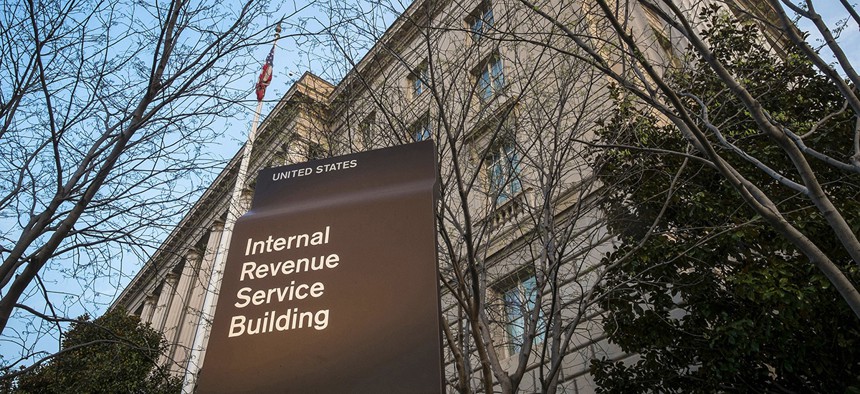5 Tips to Avoid Getting Scammed This Tax Season

The Internal Revenue Service headquarters building in Washington, DC. J. David Ake/AP File Photo
It falls on individual taxpayers to ensure they are taking the right steps to be protected.
Darren Guccione is CEO and co-founder of Keeper Security.
For many Americans, tax season can be quite stressful as the mid-April deadline quickly approaches. Adding to that stress is the fact that the Internal Revenue Service has had its own troubles this past year with keeping its data and systems secure.
For me, personally, tax season is particularly intense because I am in the unique position of being both a cybersecurity technologist and a CPA. I know firsthand how important it is for tax information to be locked down and secure as we continue to see IRS scammers improving their game.
According to recent reports, tax scamming will cost the U.S. government $21 billion this year alone through fake refunds and fake IRS agent impersonators. The IRS reports the number of fake IRS scams is up by 400 percent.
In addition, this comes at a time when the Obama administration has a microscope on federal cybersecurity in the wake of major federal breaches, including the Office of Personnel Management. In February, the administration announced a $19 billion investment in cybersecurity and a $3.1 billion revolving fund to help replace aging government systems most vulnerable to cyberattacks.
On top of all of this, there is increased public concern around encryption. Look no further than the IRS Alert from March 1 or the recent Apple/FBI news and you’ll find that the debate has only just begun.
The government is still very much in a cybersecurity transition. Until its systems are completely upgraded, it falls on individual taxpayers to ensure they are taking the right steps to be protected.
Here are five tips for securely filing your taxes this year and preventing tax-related identity theft:
Use anti-malware software and keep your systems patched and up to date. Using basic antivirus or anti-malware software that can regularly scan for, identify and delete security threats is the first step to ensuring your computer is up to date. You should also make sure you’re updating your computers, mobile phones and other devices with the latest software updates and patches. Hackers can track your keystrokes or gain access to files that reveal highly valuable personally identifiable information. Making sure your device isn’t compromised before beginning the tax process can save you time and money.
Do your research. Prior to filing a tax return online or in person, be sure to research the tax preparation service you plan to use. Make sure you know how the service protects your information and keeps it secure. Most programs use data encryption and even fingerprint ID protections. Set up your tools with multifactor authentication whenever possible.
If filing electronically, use a secure Internet connection and home set-up. Do not file your taxes on a public network. Instead, use a private network and make sure your Internet password, computer password and all online passwords (email, tax return website, etc.) are at least eight characters in length and use a combination of uppercase and lowercase letters, numerals and symbols. Password managers make it easy to use strong, unique passwords. They store, share and manage your passwords, logins, credit card numbers, bank accounts and private information in your digital vault. Hackers can't gain access to your personal information through an encrypted digital vault.
Identify phishing scams. Phishing emails are sent to you on a daily basis disguised as legitimate messages from banks, organizations and companies. While some are easy to determine as obvious fraud, many are not. Make sure to protect your email by using automatic spam detectors and know the typical signs of a fake email. These include: demand for payment, asking for personal information, links to a suspicious website, hyperlinked URL and message URL that are different, and spelling and grammatical errors.
Remember that the IRS will never contact you by phone or email. If the IRS needs any information, representatives will only contact you through mail. Anyone who calls or emails you claiming to be the IRS, asking for your credit information, money or threatening to sue you is a fake. Don’t be fooled by these hackers and don’t engage with them. Let any numbers you don’t recognize go to voicemail so you aren’t pressured into engaging with any fraudsters.
These simple security tips will help to ensure a safer tax season for all! Following these simple steps will help make this process faster and more secure.



 By
By